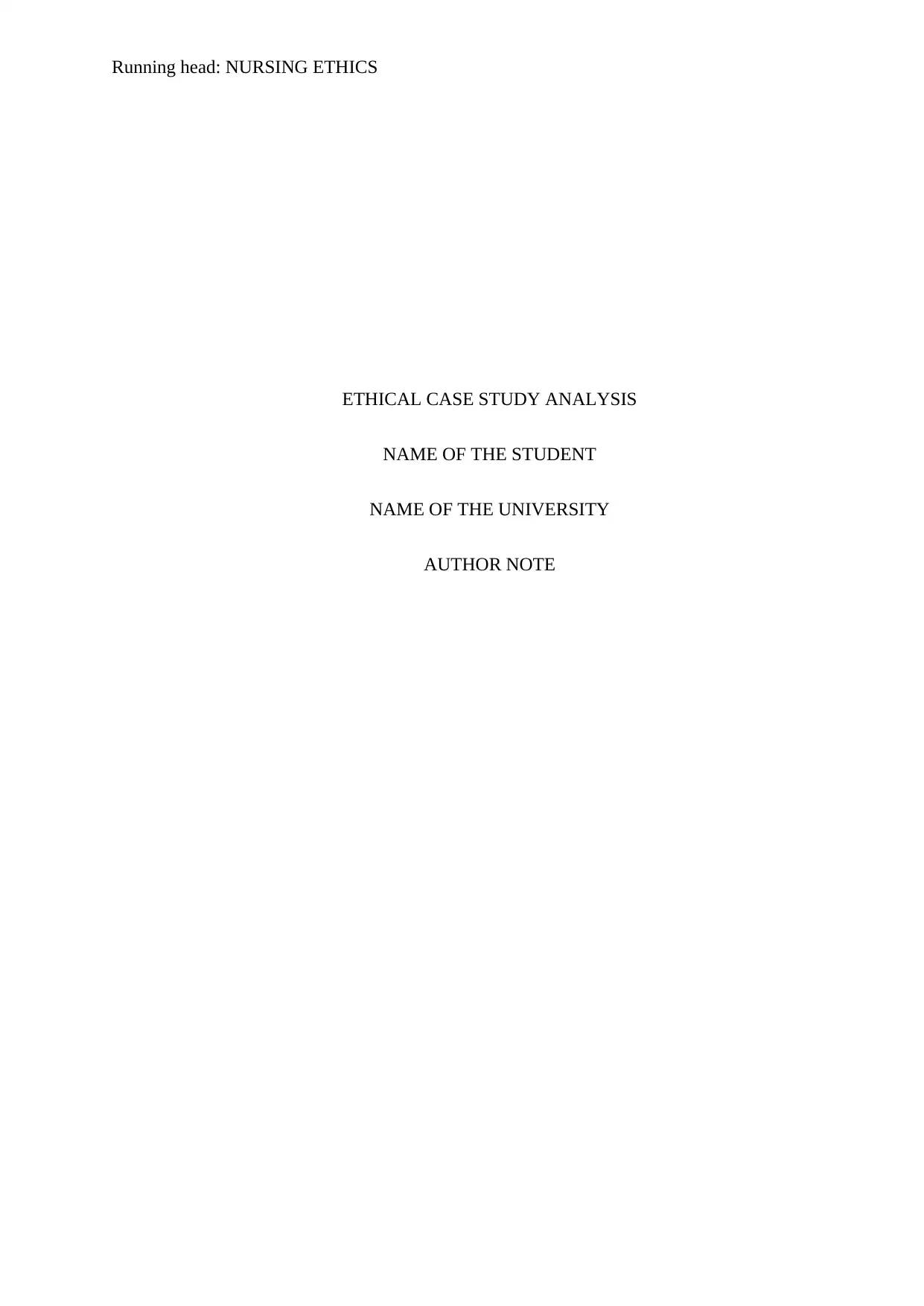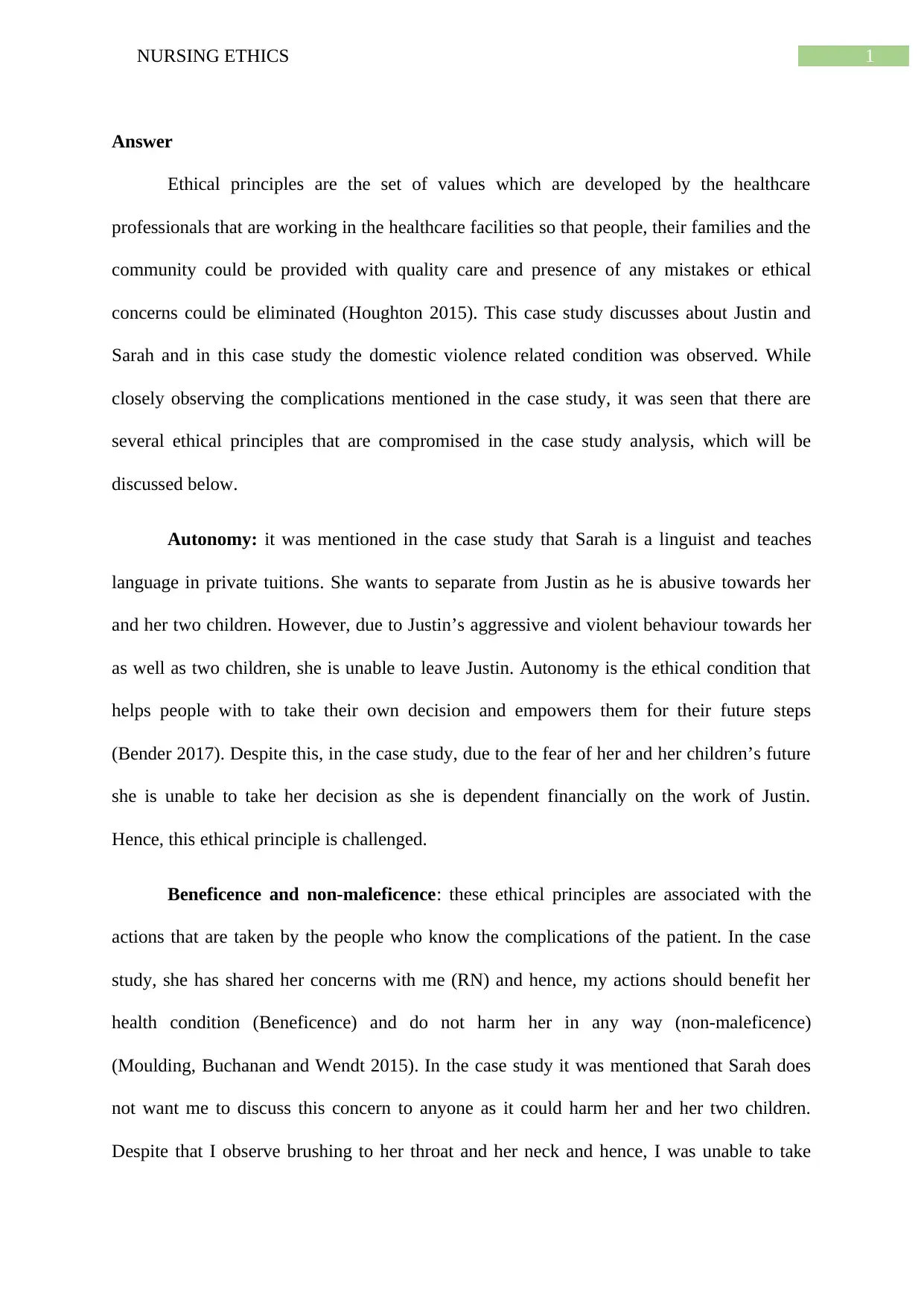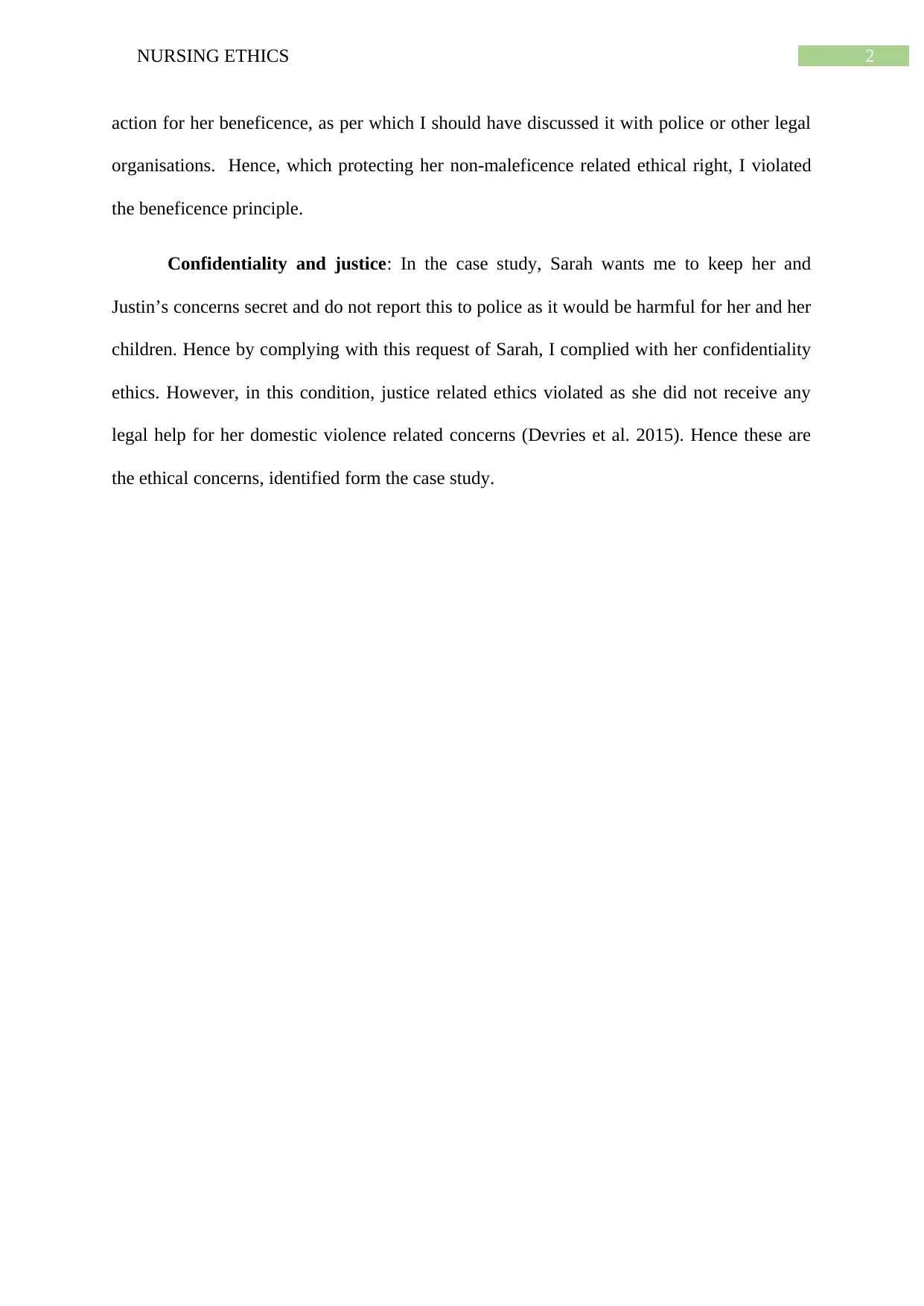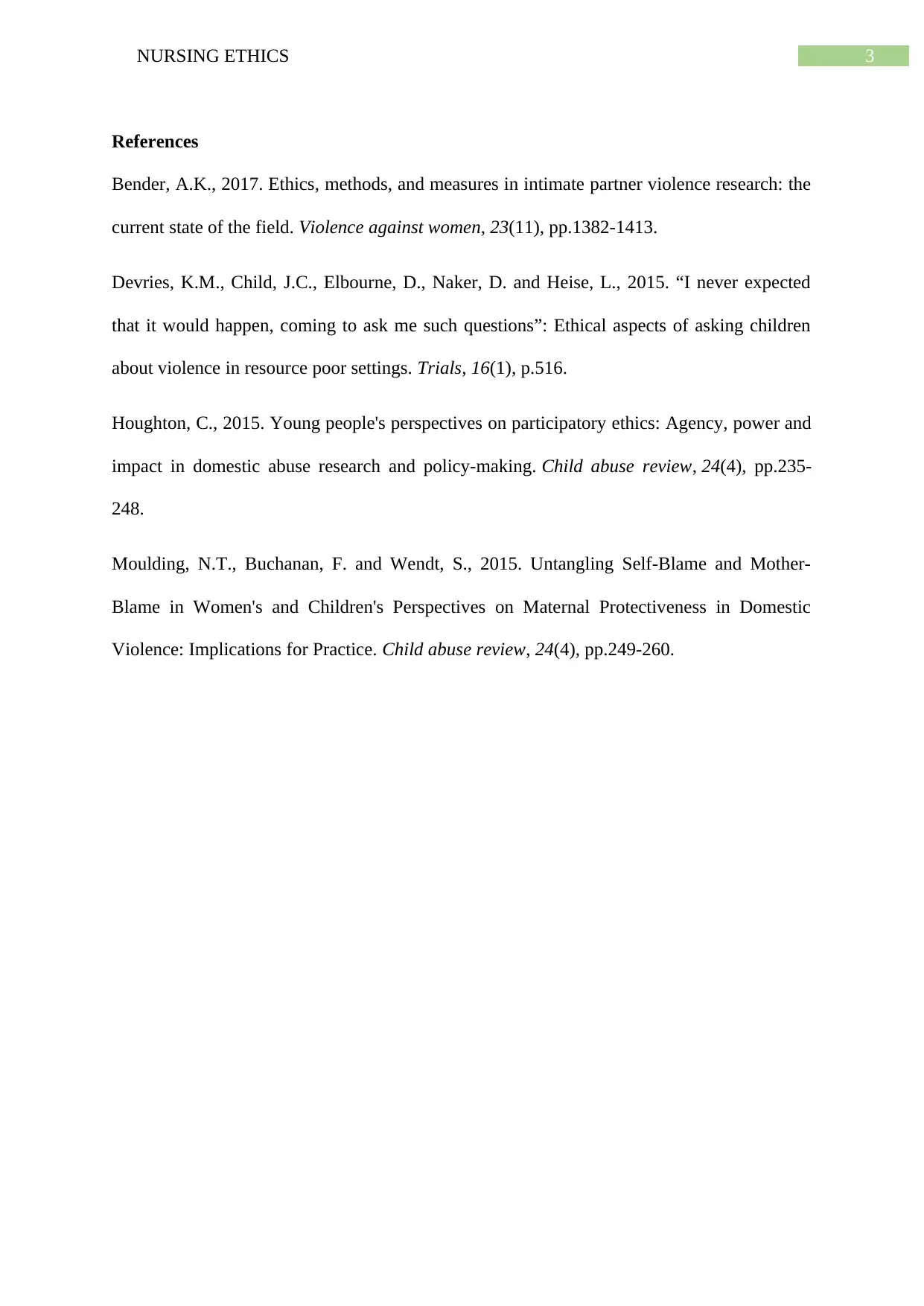Ethical Case Study Analysis
VerifiedAdded on 2023/03/30
|4
|587
|165
AI Summary
This case study discusses about Justin and Sarah and in this case study the domestic violence related condition was observed. While closely observing the complications mentioned in the case study, it was seen that there are several ethical principles that are compromised in the case study analysis, which will be discussed below.
Contribute Materials
Your contribution can guide someone’s learning journey. Share your
documents today.
1 out of 4








![[object Object]](/_next/static/media/star-bottom.7253800d.svg)